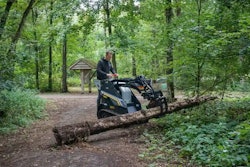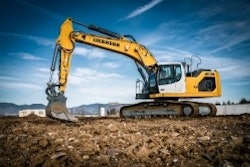The biodiesel industry is maturing:
· In October, ASTM International came out with two on- and off-highway biodiesel blend specifications – one on B5 and lower blends, the other on fuel blends between B6 and B20. These specs apply regardless of the feedstock used to make the fuel. Considered critical by engine manufacturers, the specifications will ease further acceptance of biodiesel blends.
· Although the economy is causing some biodiesel producers to draw back, the infrastructure has grown, with 176 operational biodiesel plants, 60 blending sites and around 740 truck stops offering biodiesel.
· Starting this past December, the Federal Trade Commission began requiring labels on biodiesel pumps. This requirement applies to any blends of more than B5. “Biodiesel blends of 5 percent or less are simply considered part of the conventional diesel fuel pool,” says the National Biodiesel Board.
On the trucking side, the Two Million Mile Haul, sponsored by Fort Dodge, Iowa-based Decker Truck Line in coordination with several entities, wrapped up its test late last year. Decker pitted a fleet of identically spec’d 2007 Peterbilts with Cat C13 ACERT engines on two routes, one half of the fleet using regular diesel and the other half using B20.
“Looking at the data, there was 2-percent mpg penalty for using biodiesel,” says Steve Lursen, Decker’s special projects director. “Whether that’s significant or not of course depends on the price of fuel.” Lursen is especially looking forward to reviewing the Caterpillar findings after Cat’s tear down of the engines that used biofuel. Don Heck, coordinator of biotechnology and biofuels programs at Iowa Central Community College, is analyzing the test data, and at press time, was expected to issue a report in February.
One irony of the Two Million Mile Haul is that Decker is no longer using biodiesel, because of the current price premium.
On the construction side, A P. Reale, the contractor on the Destiny USA development in Syracuse, New York, which encourages the use of B100, used a total of 11,397 gallons of different blends of biodiesel throughout 2008, reports Charlie Manfred, project manager. “We’re using B20 on three projects as well,” he says. “It’s our goal this season to switch totally to B20 at a minimum.”





